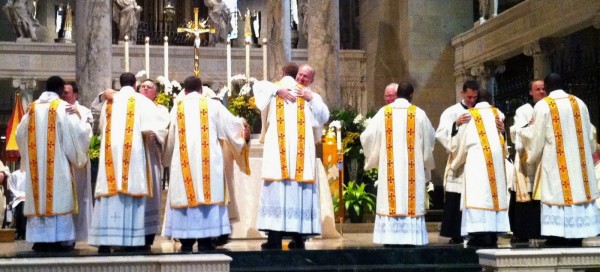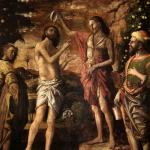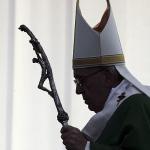I seem to remember posting something on this a few years ago at my old site. But a reader sent it my way, and it deserves re-posting.
From Zenit, via Catholic Online, here is Pope Benedict speaking about permanent deacons in 2008:
Following a Lenten tradition, Benedict XVI met Thursday with parish priests and clergy of the Diocese of Rome. During the meeting, the participants asked the Pope questions. Here is a translation of the first question and the Holy Father’s answer.
[Deacon Giuseppe Corona:]
Holy Father, I would like first of all to express my gratitude and that of my brother deacons for the ministry that the Church so providentially has taken up again with the [Second Vatican] Council, a ministry that allows us to fully express our vocation. We are committed in a great variety of works that we carry out in vastly different environments: family, work, parish, society, also the missions of Africa and Latin America — areas that you indicated for us in the audience you granted us on the occasion of the 25th anniversary of the diaconate of the Diocese of Rome.
Now our numbers have grown — there are 108 of us. And we would like for you to indicate a pastoral initiative that could become a sign of a more incisive presence of the permanent diaconate in the city of Rome, as it happened in the first centuries of the Roman Church. In fact, sharing a significant, common objective, on one hand increases the cohesion of diaconal fraternity and on the other, would give greater visibility to our service in this city. We present you, Holy Father, the desire that you indicate to us an initiative that we can share in the way and the manner that you wish to specify.
In the name of all the deacons, I greet you, Holy Father, with filial affection.
[Benedict XVI:]
Thank you for this testimony as one of the more than 100 deacons of Rome. I would like to also express my joy and my gratitude for the Council, because it revived this important ministry in the universal Church. I should say that when I was archbishop of Munich, I didn’t find perhaps more than three or four deacons, and I very much favored this ministry because it seemed to me to belong to the richness of the sacramental ministry in the Church.
At the same time, it can equally be the link between the lay world, the professional world, and the world of the priestly ministry — given that many deacons continue carrying out their professions and maintain their positions — important or those of a simple life — while on Saturday and Sunday they work in the Church. In this way, you give witness in the world of today, as well as in the working world, of the presence of faith, of the sacramental ministry and the diaconal dimension of the sacrament of Orders. This seems very important to me: the visibility of the diaconal dimension.
Naturally as well, every priest continues being a deacon, and should always think of this dimension, because the Lord himself made himself our minister, our deacon. We can think of the gesture of the washing of the feet, with which he explicitly shows that the master, the Lord, acts as a deacon and wants those who follow him to be deacons that they fulfill this role for humanity, to the point that they also help to wash the dirtied feet of the men entrusted to us. This dimension seems very important to me.
On this occasion, I bring to mind — though it is perhaps not immediately inherent to the theme — a simple experience that Paul VI noted. Each day of the Council, the Gospel was enthroned. And the Pontiff told those in charge of the ceremony that he would like one time to be the one who enthrones the Gospel. They told him no, this is the job of the deacons, not of the Pope. He wrote in his diary: But I am also a deacon, I continue being a deacon, and I would like to also exercise this ministry of the diaconate placing the word of God on its throne.
Thus, this concerns all of us. Priests continue being deacons, and the deacons make explicit in the Church and in the world this diaconal dimension of our ministry. This liturgical enthroning of the word of God each day during the Council was always for us a gesture of great importance: It told us who was the true Lord of that assembly; it told us that the word of God was on the throne and that we exercise our ministry to listen and to interpret, to offer to the others this word.
There’s much more. Read it all. It’s superb.
















